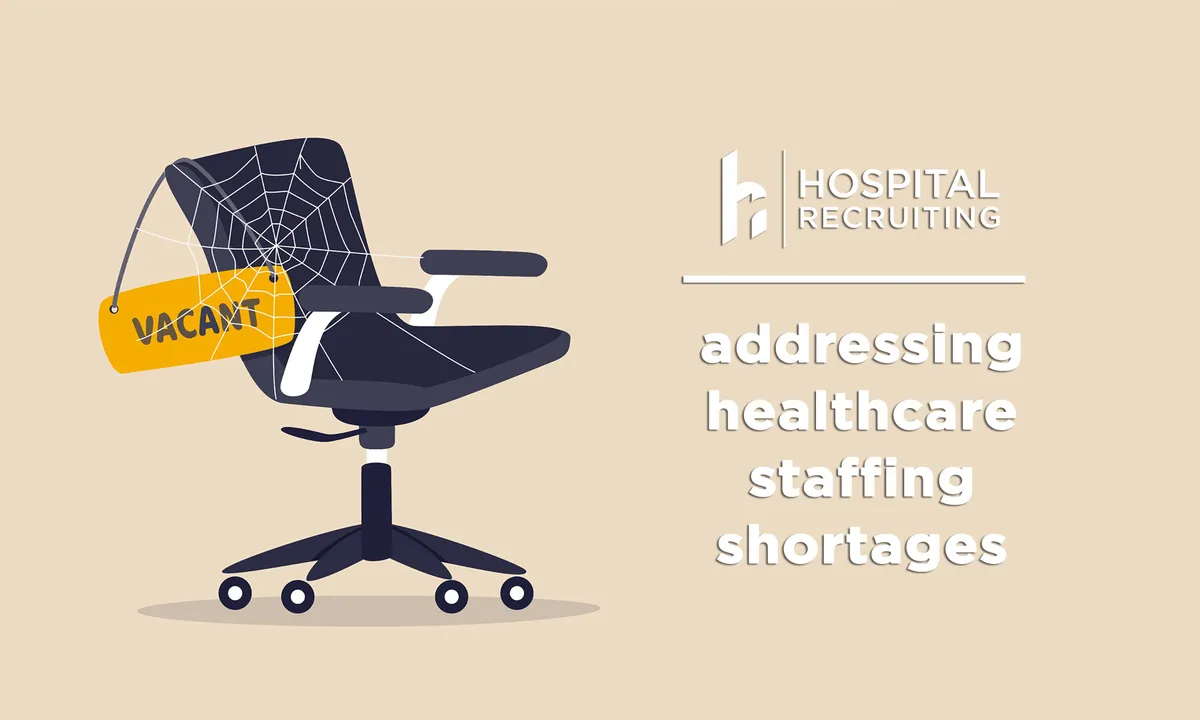How the best Healthcare Recruiters are Overcoming Staffing Shortages

Talent shortages continue to pressure recruiters in the healthcare industry. From the administrative wing down to housekeeping, time to hire is increasing — often with no hire on the horizon at all. For recruitment professionals, sourcing talent has never been more difficult. Time spent on active and passive recruitment efforts is outpacing time spent interviewing and vetting candidates. Most agree this shift in priorities will continue at least for the short-term.
The Challenges

Physicians
The pandemic changed clinicians. Burnout, stress, low staffing levels, and fear of illness made many healthcare professionals rethink their career choice. In 2021 the American Medical Association polled over 20,000 physicians about their plans for the future. One in five said they’d be leaving their practice by 2023: about 30% said they’d be reducing their workload/hours. Another report by the Advisory Board found about 10% of physicians decided to retire during the pandemic; 3% left their job for non-clinical careers.
Nursing
Overall, about 25% of clinicians are considering a career change, with staff RN turnover at a high of 27% in 2022. HospitalIQ found 9% of nurses considered leaving the profession during the pandemic, but 72% said they were experiencing burnout long before COVID-19.
Staff shortages increase the workload of active nurses, pushing them closer to the burnout stage. Non-nursing duties, including clerical, cleaning, and supply replenishment are being added to their workload. One study found almost 40% of nurses said they were experiencing more serious mental health issues, including anxiety and depression.
Support staff
Hiring unskilled workers for facilities support, as well as skilled workers in clerical positions, continues to be difficult. In 2021 nearly 5 million Americans quit their jobs, many in search of a better work/life balance. As remote work has attracted many skilled workers back to the job, healthcare facilities are challenged to compete. The result: staffing shortages across all categories of labor.
The Solutions

Debt repayment
Across all industries, companies are finding the best way to attract and retain talent is to offer assistance in repaying student loan debt. For clinicians, loan burden may be higher than any other industry. Agreements are made for the institution to participate in repayment along with the employee. In some industries, the costs reduce tax burden; for non-profits it may just be a cost of doing business.
Professional support
For many healthcare professionals problems are evident, but no one is working on solutions. Consider creating a Professional Wellness Advisory Board in your facility to meet regularly to discuss issues and suggest solutions. You may find separate committees are optimal for physicians, nurses, and other clinical professionals.
Task IT staff with sourcing or investigating suggested emerging technology that supports clinician task management and performance. Invite vendors to discuss tech solutions that may help staff. As the group(s) comes up with problems or solutions, act quickly to provide assistance.
Offer access to mental health and stress-management services directly to staff members at all levels. Communicate and encourage use of these services, remotely, if possible, for privacy and access, to help staff manage stress and burnout.
Poach the hospitality industry
For non-clinician positions, look to the hospitality industry to source staff members. Over the course of the pandemic, an estimated 8 million jobs were lost in the restaurant, hotel, and leisure sector. While some of those jobs have returned, they have not kept pace with other industries. For housekeeping, food service, and other non-skilled jobs, sourcing talent from these industries may be fruitful.
Hospitals represent job-security, something many hospitality workers have not had over the course of their careers. Place your job postings for non-skilled workers where fast-food companies post. Advise applicants you provide consistent, reliable hours, shifts and paychecks, as well as other benefits. Consider adding tuition reimbursement to develop these workers for the future.
Embrace remote wherever possible
For administrative, clerical, and other support staff, you’re likely competing with remote work options when it comes time to hire. If possible, offer recruitment, accounting, IT and other support personnel remote or hybrid (part-time onsite/part-time remote) options when you can. These jobs help workers better achieve work/life balance and are more likely to attract and retain talent.
Reduced hours over resignation
For many clinicians, burnout is a direct result of overwhelming schedules and workload. If there is a choice between losing a professional or transitioning them to a part-time schedule, consider making the offer. They may find reduced hours are an immediate solution to feelings of stress and burnout. In the future, they may be ready to return to full-time work. Salvaging skilled workers, at any level, is worth exploring.
Healthcare providers are aware shortages will continue into the foreseeable future. Those who offer support and options for skilled and unskilled staff may be better able to maintain headcount and patient care.
*Editor's Note: Addressing staffing shortages means advertising your positions to the right candidates in the right place. Consider registering an employer account on HospitalRecruiting to source talent*
Related Posts
